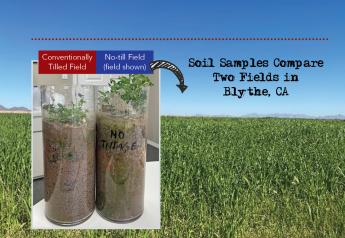CFATS: What It and Its Renewal Means to Ag Retail

In 2006, the regulatory program Chemical Facility Anti-Terrorism Standards (CFATS) was established. CFATS is overseen by the Department of Homeland Security (DHS) aiming to prevent chemicals from being stolen, sabotaged or deliberately released by any bad actor, including terrorists.
CFATS is back in the news because the Congressional authorization for the program is set to expire in January 2019.
“We had annual reauthorization for CFATS until 2014, and then Congress passed a statute that granted a four-year authorization,” explains Amy Graydon, Acting Director of the Infrastructure Security Compliance Division which administers the CFATS program. Graydon says the four-year authorization provided stability for industry so businesses in the regulated universe had the necessary time to implement security measures or make necessary capital investments. The Department is working with Congress and stakeholders to ensure that chemical facilities and the American people remain certain that this important national security program does not lapse.
Currently, CFATS covers approximately 3,400 chemical facilities, including Ag retailers. The CFATS regulation lists more than 320 chemical of interest (COI), of which if a facility stores or distributes a COI at or above the threshold quantity and concentration, it is required to report its holdings to CFATS. The list of COIs and their screening threshold quantities is available here.
Due to the nature of the business of ag retail and products that it stores and distributes, retail locations should be aware of two types of threats: cyber and physical. Graydon explains most retailers are tiered in the CFATS program because they are at risk for the chemicals being stolen or diverted and being exploited offsite.
“We want to work with businesses to help prepare them to think two steps ahead,” Graydon says. “Retailers should understand that the chemicals they have are vital to the nation’s food supply. But they are also attractive to those who seek to do us harm.”
As examples, Graydon says retailers should be sure cyber systems that involve their inventory are adequately protected, including CCTV. She also advises for infrastructure risk management, retailers should install appropriate detection and deterrent measures, such as locks, and make sure they have good inventory control practices.
There is a time extension to comply with the CFATS requirement for most farms that use the COI in preparation for or during the application to crops, feed, and land livestock. However, this time extension does not necessarily apply to Ag retailers. Retailers that have a COI at or above the applicable screening threshold for purposes other than those just described are required to submit information to DHS.
Request a CFATS Presentation to learn about any part of the CFATS regulation from submitting a Top-Screen to editing a security plan: www.dhs.gov/request-cfats-presentation.
Contact the CFATS Help Desk with questions or to begin the process at 866-323-2957 or at csat@hq.dhs.gov.
Learn more about the program at www.dhs.gov/chemicalsecurity
Additionally, DHS is sponsoring three regional events for education and networking. An upcoming event will be held July 19, in Chicago. The East coast event is scheduled for August 2, in Philadelphia.







